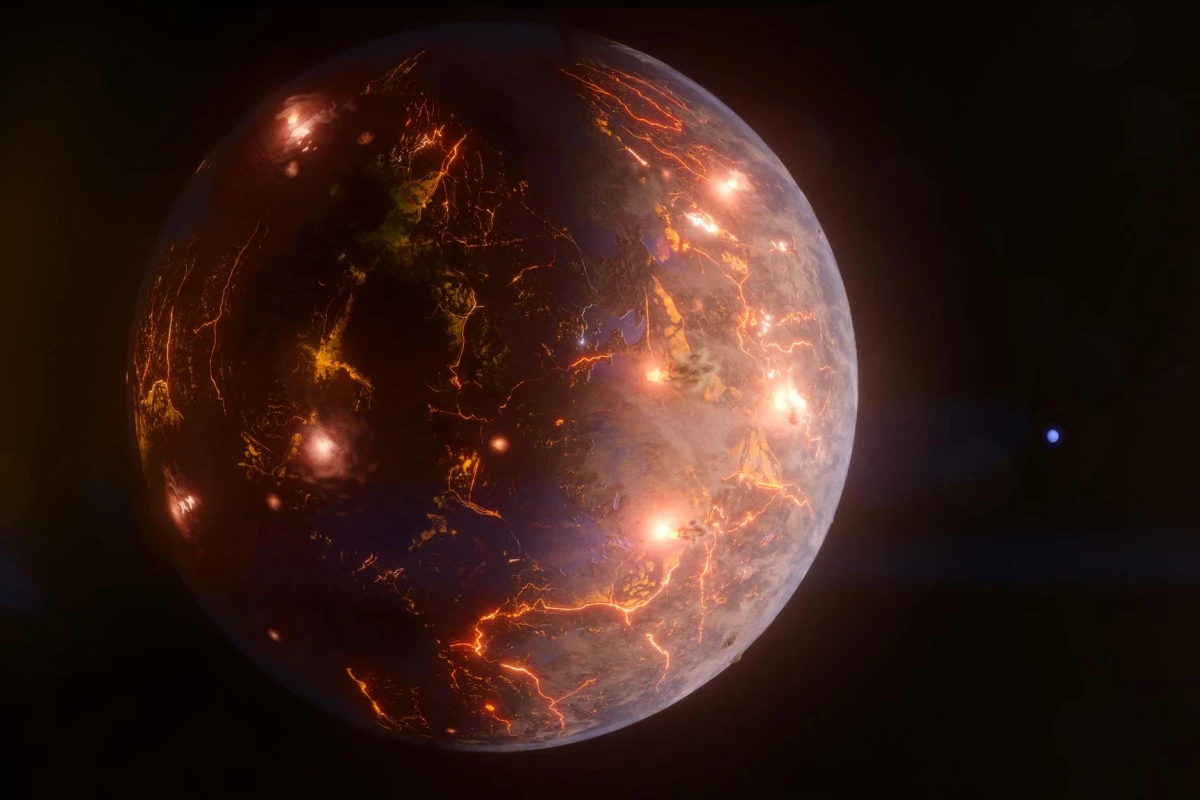A new, Earth-sized planet has been discovered only 90 light-years away from us. In astronomical terms, that’s right next door. What’s more, it might be capable of supporting life.
Named LP 791-18d, astronomers detected the exoplanet through ground- and space-based observations by NASA’s Transiting Exoplanet Survey Satellite (TESS) and its now-retired Spitzer Space Telescope.
LP 791-18d orbits a small red dwarf star about 90 light-years away in a constellation called Crater in the southern celestial hemisphere. The team that discovered the planet estimated its mass by measuring differences in the time it takes the planet to orbit its host star. The gravitational pull of other planets in the system causes these orbits.
Based on their calculations, the astronomers concluded that LP 791-18d is only slightly larger and more massive than Earth. The planet is tidally locked, meaning the same side always faces its star. The star-facing side would be too hot for surface water, but they suspect that planet-wide volcanic activity could sustain an atmosphere and may allow water to condense on the dark side of LP 791-18d.
“Only a small proportion of the exoplanets discovered so far are thought to be able to support life,” said Karen Collins, a co-author of the study that details the findings. “Our discovery of LP 791-18d gives us more hope that we might one day find signs of life on another planet.”
LP 791-18d is on the inner edge of the habitable zone, a ‘Goldilocks zone’ that’s not too hot and not too cold for liquid water to exist on the surface of surrounding planets. Before they discovered LP 791-18d, astronomers were already aware of another planet in the system, LP 791-18c, an outer planet that’s much larger and more massive than planet d.
When planet c passes close to planet d, it produces a gravitational tug, making planet d’s orbit elliptical. The elliptical orbit deforms planet d slightly, creating internal friction that substantially heats the planet’s interior and produces volcanic activity on its surface. Jupiter’s moon, Io, is affected in a similar way.
Researchers have already received approval to study planet c’s atmosphere using the James Webb Space Telescope and hope to add planet d to the list.
“This discovery is just a first step,” said Collins. “With the potential to continue studying this planet with the James Webb Space Telescope, we will be able to fine-tune our observations and learn more about the planet’s likely volcanically fueled atmosphere. Future discoveries will help us understand how the ingredients of life might have come to be on worlds other than our own.”
The study was published in the journal Nature.
Source: Smithsonian





